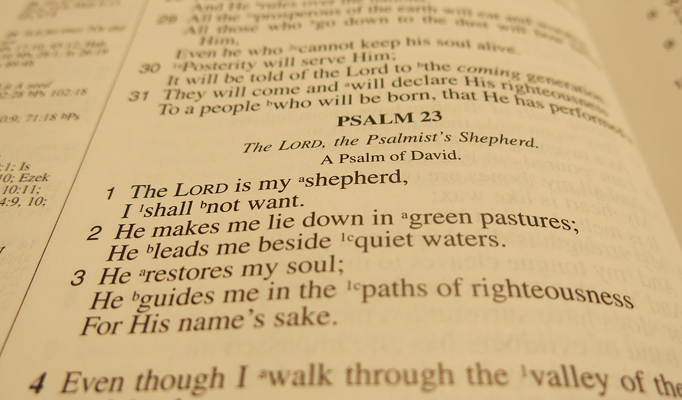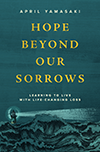
Years ago, I was given a slim, pocket-sized Bible that held the New Testament and Psalms. Keeping the books of the New Testament together made sense to me since they tell the story of Jesus and his followers.
But I wondered why the Psalms were added to the end of the New Testament. Why not add Genesis that tells the story of creation? Or the book of Exodus that gives the ten commandments? Or the prophet Isaiah who foretells the coming of Jesus? What was so special about the Psalms? In the sixteenth century, German theologian and Protestant reformer Martin Luther wrote in his preface to the book of Psalms: “It could well be entitled a “Little Bible” since everything contained in the entire Bible is beautifully and briefly comprehended, and compacted.”
For example, Psalm 89:1 says, “I will sing of the Lord’s great love forever” – not only from September to June during the school year, but right through the summer and forever. In the New Testament, John 3:16 says, “God so loved the world that he gave his one and only Son.” The love of God demonstrated in the New Testament appears in Psalm 89 and throughout the book of Psalms, expressed in the beautiful and compact words of poetry.
In Psalm 63:1, the psalmist describes longing for God: “You, God, are my God, earnestly I seek you; I thirst for you, my whole being longs for you, in a dry and parched land where there is no water.” This thirst for God appears also in the New Testament. Revelation 22:17: “The Spirit and the bride say, ‘Come.’ And let the one who hears say, ‘Come.’ Let the one who is thirsty come; and let the one who wishes take the free gift of the water of life.” Jesus himself speaks of a spiritual hunger and thirst in his sermon on the mount: “Blessed are those who hunger and thirst for righteousness, for they will be filled” (Matthew 5:6).
Psalm 130:3 offers this confession and assurance of forgiveness: “If you, Lord, kept a record of sins, Lord, who could stand? But with you there is forgiveness, so that we can, with reverence, serve you.” In the New Testament, Jesus speaks of his authority to forgive sin (Luke 5:24), and 1 John 1:8-9 offers this assurance: “If we claim to be without sin, we deceive ourselves and the truth is not in us. If we confess our sins, he is faithful and just and will forgive us our sins and purify us from all unrighteousness.”
These are just a few examples of Martin Luther’s comment that the Psalms contain everything in the Bible. Of all the books of the Bible, the book of Psalms is the most quoted in the New Testament. And the themes of the New Testament are included in the book of Psalms.
From beginning to end, the Psalms also point to God’s good creation. In Psalm 1, the person who delights in God’s law is “like a tree planted by streams of water.” In Psalm 150, “everything that has breath” is called upon to praise the Lord. In between, many of the psalms reference God’s creation of heaven and earth, trees and rivers and hills, birds and animals of all kinds. As we spend time outdoors in these summer months, the Psalms remind us that we are part of God’s creation, and we can praise God along with every living creature.
The Psalms address all of human experience during the summer and throughout the year: times spent travelling and at home, in solitude and in community with family and friends, in personal devotion and gathered worship, in praise and prayer. Psalms of cries and curses give voice to lament. Psalms of thanks express gratitude to God. Royal psalms written for kings are instructive for leaders today. Wisdom psalms offer practical advice for daily living.
American evangelist Billy Graham once said that the book of Psalms taught him how to get along with God. During his life and ministry, he would read up to five psalms a day.
This summer, I’m starting to read through the Psalms again, and invite you to join me. Unlike Billy Graham, I might read just one psalm a day, or just a portion of a psalm. After all, Psalm 119 has 176 verses! Whatever your rhythm might be this summer, whether you’re filled with praise or lament, on the road or staying at home, why not let the Psalms be part of your summer too.
“The day is yours, and yours also the night; you established the sun and moon. It was you who set all the boundaries of the earth; you made both summer and winter” (Psalm 74:16–17).

April Yamasaki currently serves as resident author with Valley CrossWay Church, editor of Rejoice! daily devotional magazine, and often speaks in churches and other settings. Her third Herald Press book is new this summer: Hope Beyond Our Sorrows: Learning to Live with Life-Changing Loss. Learn more at AprilYamasaki.com, WhenYouWorkfortheChurch.com, and Writing and Other Acts of Faith on Substack.

Leave a Reply